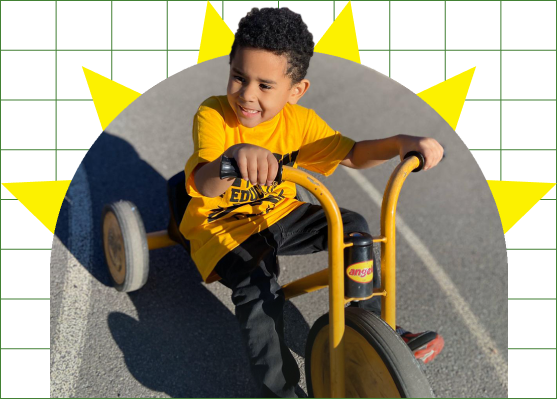When we think of developing new skills in preschoolers, it’s often the fine motor skills that come to mind. Things like learning how to hold a crayon or how to draw a circle are obviously important for school, but what about gross motor skills?
Big body play is actually a critical part of your child’s development, and one that children often don’t get enough opportunities to practice. Running, climbing, and jumping are all examples of big body play that help refine gross motor skills.
The benefits of gross motor skills
Gross motor skills are the big movements your body uses to get around. They are what allow you to climb stairs safely, run, and play sports. They also have a full range of wonderful benefits for preschoolers.
Children who have enough access to Big Body Play, or BBP, often benefit from it mentally. Children who are given access to just 15 minutes of BBP are much calmer afterwards, and usually stay calm for a longer period of time compared to preschoolers who didn’t get the same playtime.
There’s also extensive research that shows academic benefits as well. In 2016, Eagle Mountain Elementary School in Fortworth Texas decided to triple the amount of recess they gave children. While the teachers initially feared that the kids would fall behind academically, they actually ended up well ahead of other schools.
Countries that regularly offer extended amounts of recess to their students are well known for students that regularly excel in academics. The Fortworth study for example, was originally modeled after the Finnish school system, which is regularly known for turning out spectacular students.
While elementary school may seem a long way off for your preschooler, many of the same benefits exist. Big body play also give them the chance to learn body language, get physical contact in an appropriate way, and learn how to use their own bodies.
Gross Motor Skill Milestones
Every child develops at their own pace, and if your child hasn’t mastered a milestone it doesn’t necessarily mean they are behind. An average preschooler should be able to manage some or all of the following:
- Carry a large toy, or multiple toys at the same time
- Kick a ball
- Jump
- Walk up and down stairs with support
- Climb on and off furniture
If your child can’t do all of these things, it is okay. They may just need a little more time to develop, or perhaps have not had regular opportunities to practice the skill. If your child seems unusually clumsy compared to other kids their age, or goes backward in skill however, these are red flags you should speak to your doctor about.
Preschoolers can benefit a great deal from the chance to go outdoors, be free, and experience large amounts of time in unstructured play. Play is a child’s most important work, and the skills they learn running, jumping, and climbing are skills they will continue to use throughout their lives.


